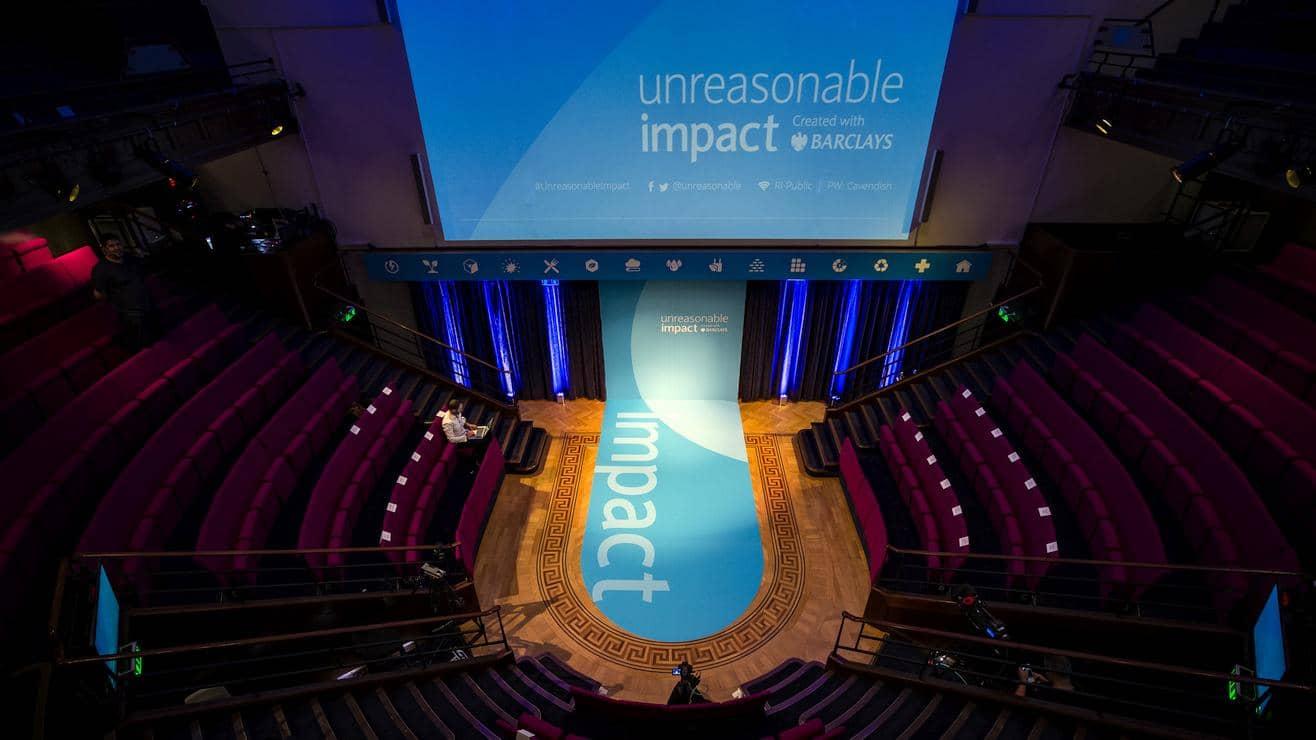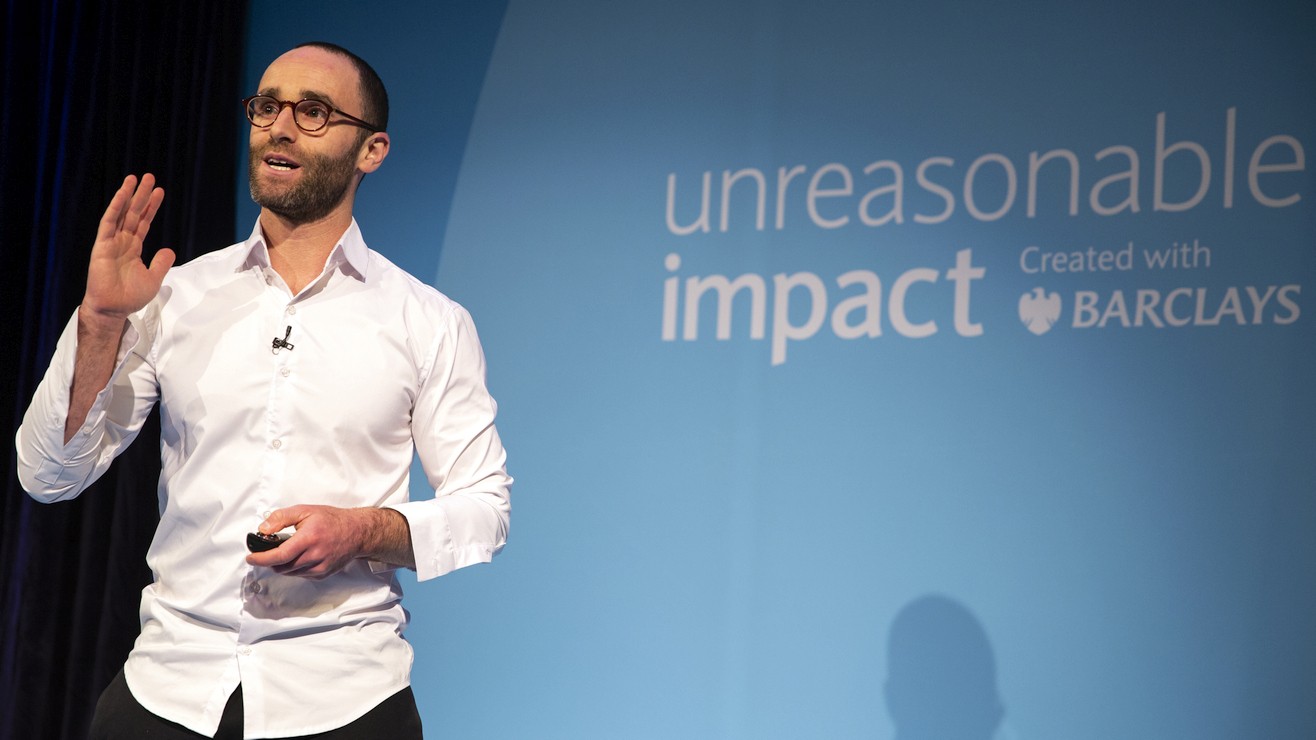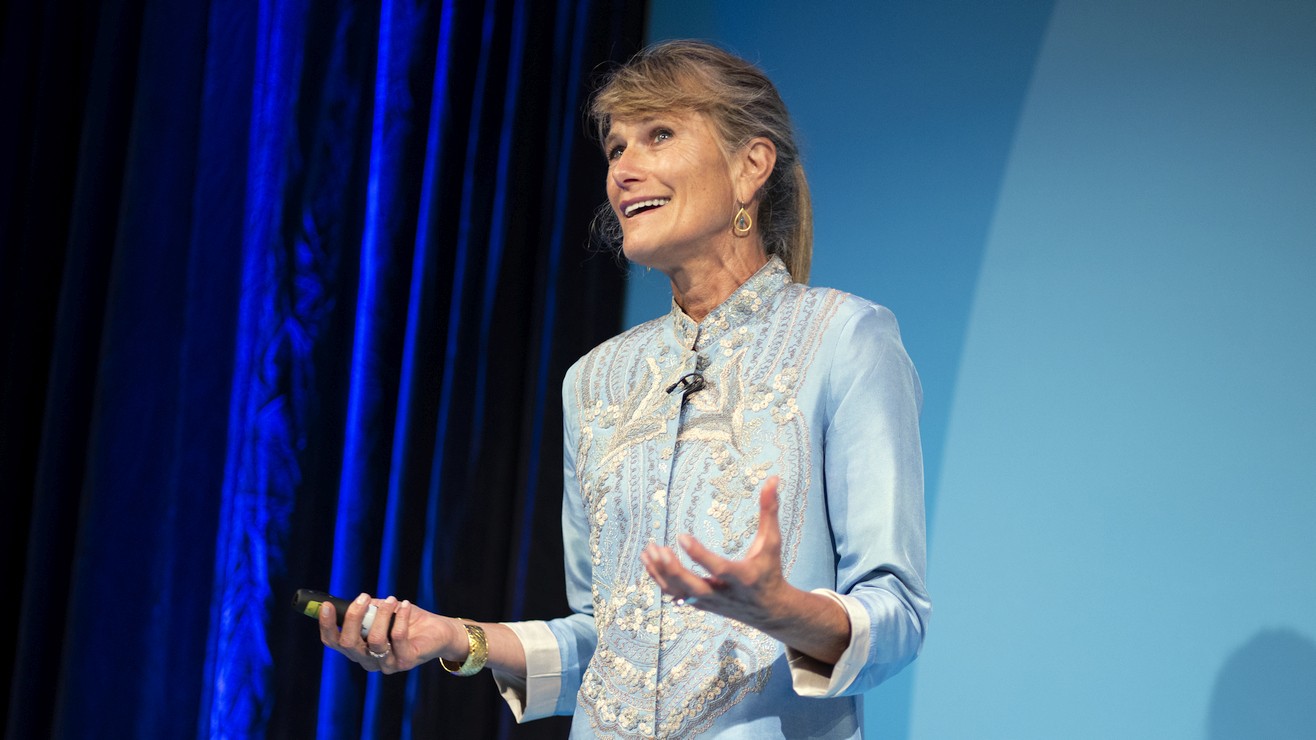
Unleashing the green economy in Asia
Our third Unreasonable Impact Accelerator launches this May in Singapore.

community
Unreasonable Impact is an innovative partnership between Barclays and Unreasonable Group. The global programme helps scale high-growth ventures addressing key global challenges with the aim of creating the jobs of tomorrow.
At the Unreasonable Impact World Forum 2018, guests viewed presentations from 25 of the Unreasonable Impact companies seeking to change the future of energy, agriculture, supply chains and sustainable living.
Held at the Royal Institution of Great Britain – which Unreasonable Group Founder and CEO Daniel Epstein noted was set up to “explore new technologies and share them with the public” – the day introduced the next wave of disruptive companies offering the potential to reshape the future. The event, Epstein said, gave “a front row seat to understand what the future’s going to look like, and the future is closer than we think”.
We’ve curated some of the key talking points of the day:
1. “The pace of change now is almost uncomfortable”
Remarking that previous disruptive technologies would typically take 10 to 20 years to eclipse the market, Epstein said: “The S-curves of technology adoption are turning into straight lines.”
“If we want to bend the future,” he continued, “we have to be pathologically collaborative. Today, 47% of jobs that exist in the US will not exist by 2035. The intention of this partnership is to scale up companies that will create 500 jobs in the next five years and do so with sustainability at the heart of their profit models. Over the past two years we’ve worked with 71 companies, who’ve generated over US $2bn in revenues and finances, and so far created over 6,700 net new jobs and reached over 100 million customers.”
2. “Why is Barclays involved with Unreasonable?”
Epstein stressed that the programme is tagged as “created with Barclays” to show the bank’s high level of involvement and commitment to tackling society’s biggest challenges.
Joe McGrath, Barclays’ Global Head of Banking, said: “If you think about it from a broad perspective, what we do with our clients every day is try to help them scale and grow. Through our partnership with Unreasonable, we are able to work with companies who are not only scaling but who are also focused on solving some of today’s most complex societal issues. Helping these companies is truly impactful for us at the firm. As well as meeting their social obligations, we get to benefit from these companies creating jobs.”
3. “Don’t mention electric cars, people will think you’re crazy”
The 25 companies involved in this year’s Unreasonable Impact World Forum had under four minutes each to deliver lightning talks to an audience of business leaders, bankers, investors and fellow entrepreneurs. Ben Todd, Founder and CEO of Arcola Energy, concentrated on hydrogen and fuel cell technology that can allow buses to travel 200 miles on zero emissions, with the potential to move into clean energy for trucks, trains and ships.
Speaking for many innovators looking at the pace of change, he said: “Why did it take so long to realise electric cars were so good? I was talking at an investment round three years ago and people were saying ‘don’t mention electric cars, people will think you’re crazy.’”
Things change fast and, as Jacqueline Novogratz, Founder and CEO of impact-focused patient capital fund Acumen and the day’s keynote speaker said: “If ever there was a time to be unreasonable, it’s now.”
4. “Wherever there is air, there will be healthy drinking water”
Johnny Ip, Vice President and Chief Information Officer of Chinese company Heaven Springs Dynasty Harvest Group, told the crowd that in 2025, 5.3 billion people will face severe water scarcity. Currently just 1% of water from the air is used, but Ip’s product, which is already the basis for an exciting company, can extract drinking water from humidity.
Particularly useful in high-humidity or desert areas, industrial and ‘smart building’ versions of the appliance are planned, while Ip produces “30 litres of clean water a day just from the humidity in my apartment.”
5. “Every day’s a school day”
Giving the event’s closing speech, James Todd, Barclays’ Head of UK Domestic Private Bank, said: “I love this event. I sit in open-mouthed awe at the energy and talent on display, and the sense of good being done for all our sakes.”
Listing his highlights from the day, Todd mentioned a raft of ideas that seemed straight out of science fiction, but could be on course to help solve the global sustainability crisis. “You can flat pack a house. Rice husks can help kids do their homework. You can shave using a yoghurt pot.”
6. “Equity investors by definition are optimists”
Having a great idea is one thing, getting funding for that idea to get to scale is another. On a panel titled ‘Understanding the barriers to scale’, Brian Reilly, Barclays Global Head of Equity Capital Markets, gave his insights into successfully raising capital: “What do those companies look like? They have management teams that can articulate a strategic vision and can answer these things: What is the problem I’m trying to solve, and the opportunity I’m trying to capitalise on? How am I going to do it? How am I doing it better than anyone else?”
“Equity investors by definition are optimists,” Reilly told the gathered entrepreneurs.
Our third Unreasonable Impact Accelerator launches this May in Singapore.
Six takeaways from the Unreasonable Impact World Forum.
In 2016, Recycling Technologies was part of the first cohort of the Barclays Unreasonable Impact accelerator, which supports entrepreneurs.




